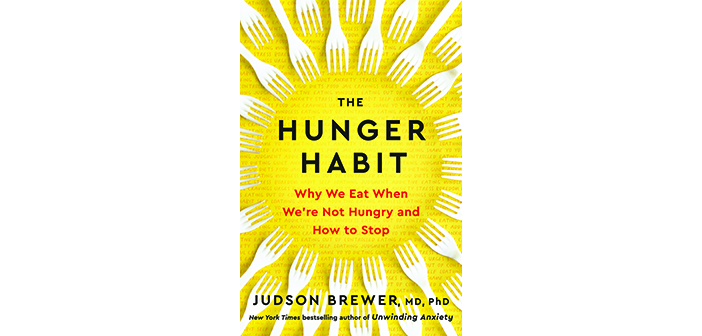The Hunger Habit: Why We Eat When We’re Not Hungry and How to Stop
BY JUDSON BREWER, MD, PHD
Avery, 2024
When Brewer, associate professor of psychiatry and human behavior and the director of research and innovation at Brown’s Mindfulness Center, started studying diets, he noticed that “they had one thing in common: shoulding.” He writes that telling people what they should and should not eat, and labeling foods and habits as “good” or “bad,” only reinforces the cycle of shame and self-blame that defines so many people’s relationship with eating. Brewer prefers to describe habits as “helpful” and “unhelpful,” because they are “something that our brains do at a very basic survival level” and not actions to be judged.
But we aren’t hostages to our habits. Brewer, who has studied and taught mindfulness techniques for decades to help patients overcome nicotine dependence and anxiety, writes that if we understand how our brains work, we can curb emotional eating, too. Chapter by chapter, readers learn to gain mindful awareness of the triggers that prompt us to eat when we’re not hungry.
Paying attention to what we’re feeling before we open that bag of chips—a grumbling stomach versus, say, boredom or stress—is the first step in changing our behavior. But Brewer reassures us that if we eat the chips even though we’re not hungry, that’s not a failure; it’s a learning opportunity. An apt analogy brings the message home: “Awareness is to habits as yeast is to bread,” he writes. “[I]t is an essential ingredient for change to happen.”




